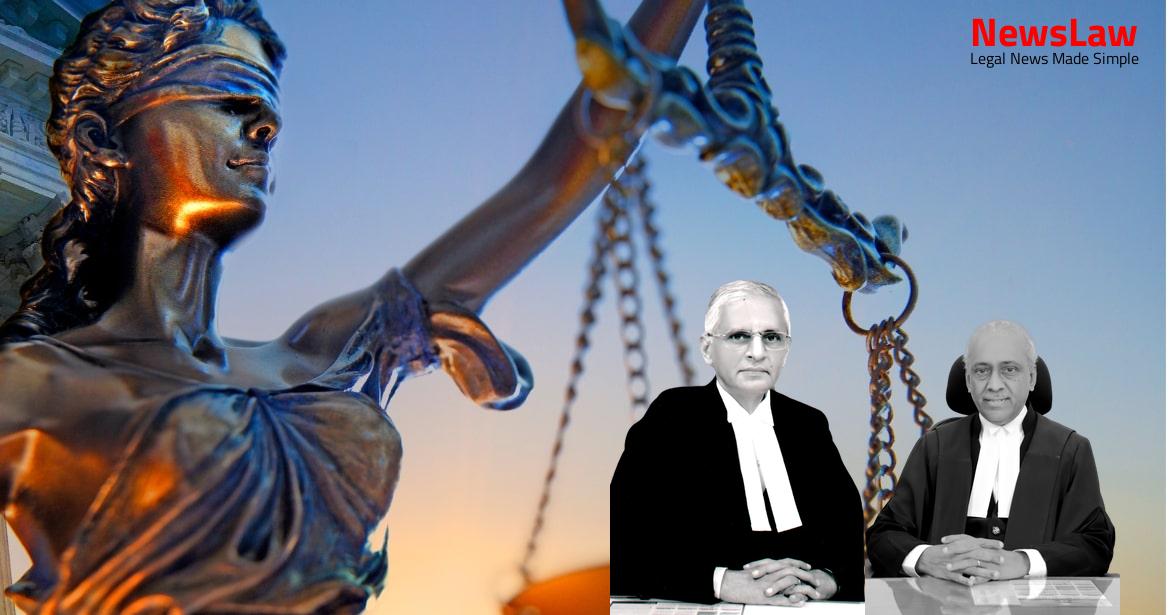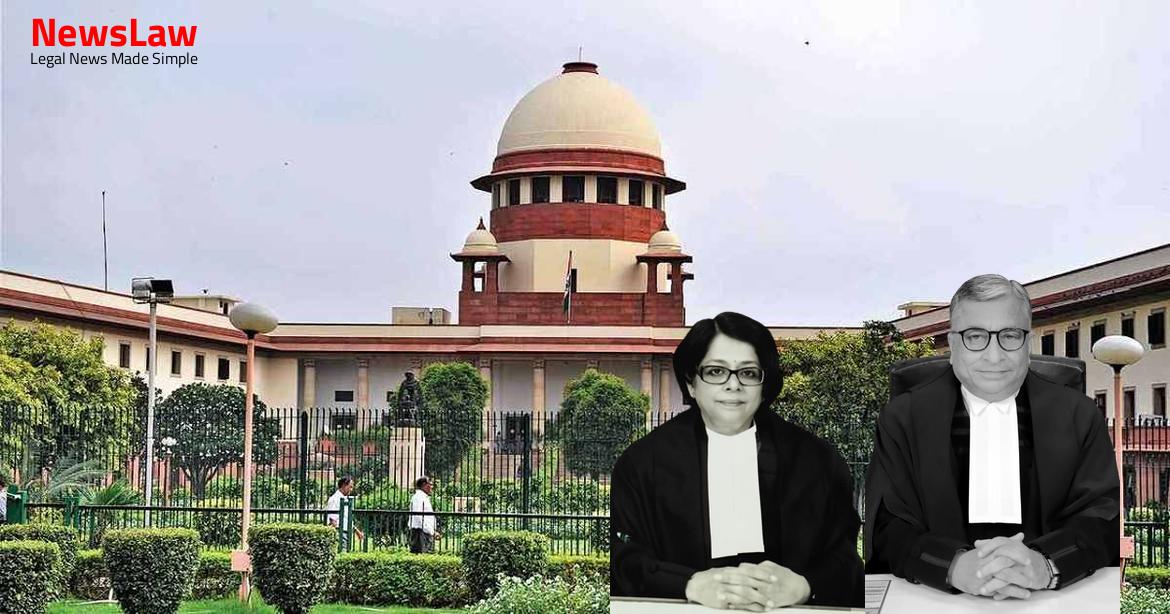In the case of State vs. Accused No. 1, the High Court of Karnataka at Bengaluru quashed the proceedings against all accused persons, including Accused No. 1. The case involved allegations of non-consensual relationships and false promises of marriage. The court’s decision to dismiss the appeal was based on a detailed analysis of the evidence presented. Read on for more on this significant legal development.
Facts
- The High Court quashed the proceedings in respect of all the accused persons.
- The order dated 3 September 2022 was challenged in the present criminal appeal.
- The impugned order was passed by the learned Single Judge of the High Court of Karnataka at Bengaluru in Criminal Petition No. 8468 of 2021.
- The petition was filed under Section 482 of the Criminal Procedure Code, 1973.
- The proceedings pending against the accused persons were quashed by the High Court.
- The complainant/appellant initially stated in her complaint that accused No 1 forcibly engaged in sexual intercourse with her and later compelled her to undergo an abortion.
- In a restatement, the complainant/appellant changed the narrative, mentioning that accused No 1 provided Ayurvedic medicine for the termination of pregnancy.
- Accused No 1 had initially promised to marry the complainant/appellant but later postponed the marriage until he completed his exams.
- Accused No 1 and his brother forcibly took the complainant/appellant for an abortion at Krishna Nursing Home and threatened her to keep silent about it.
- The complainant/appellant’s parents later requested for marriage between her and accused No 1, which was rejected by the accused stating derogatory remarks about the complainant/appellant’s caste.
Also Read: Susela Padmavathy Amma vs. Bharti Airtel Limited – Director Liability Case
Arguments
- Shri Kanna argued that the Single Judge of the High Court found insufficient evidence to establish the charges against the accused, even if taken at face value.
- It is contended that the Single Judge conducted a detailed analysis akin to a mini-trial during the Section 482 CR.P.C. petition, which is not the intended purpose of such a petition.
- The use of powers under Section 482 CR.P.C. is permissible only when the material provided, alongside the charge sheet, conclusively shows that the case would not lead to a conviction even if it proceeds to trial.
- The prosecution’s evidence, including statements from the prosecutrix and witnesses, indicates a prima facie case that Accused No. 1 engaged in a non-consensual relationship with the victim under false promises of marriage.
- Shri Dwivedi argued that the Single Judge made a grave error in quashing the proceedings as there was enough evidence to suggest that Accused No. 1 coerced the complainant into undergoing an abortion when she became pregnant.
- The High Court found no error in determining that continuing the proceedings would be an abuse of process of law and lead to a miscarriage of justice.
- It is argued that the prosecutrix targeted the entire family to harass the accused individuals.
- The High Court considered the original complaint, the appellant’s restatement before the Dy. S.P., and the doctor’s statement from Krishna Nursing Home.
- The learned counsel referenced judgments in the cases of Dr. Dhruvaram Murlidhar Sonar v. State of Maharashtra and Others, and Shambhu Kharwar v. State of Uttar Pradesh and Another to support the conclusion that there was insufficient evidence for the offenses under Section 376 of IPC.
Also Read: State vs. Appellant – Criminal Appeal No. 643 of 2008
Analysis
- The High Court should have invoked its jurisdiction under Section 482 of Cr.P.C. to quash the proceedings, similar to the case of Pramod Suryabhan Pawar.
- The initial version of the complainant and the evidence collected do not establish sufficient grounds for proceeding against the accused.
- The false promise of marriage must have a direct relevance to the woman’s decision to engage in a sexual act.
- The prosecutrix changed her version of events between the original complaint and the restatement made before the Dy. S.P., Challakere.
- The allegations in the FIR and the restatement do not clearly indicate that the promise by the accused was false or that the sexual relationship was based on such a false promise.
- The consent of a woman with respect to Section 375 must involve an active and reasoned deliberation towards the proposed act.
- The medical examination report of the prosecutrix dated 19 December 2020 was also referred to by the learned Single Judge of the High Court.
- Despite contradictions and changing versions, the material on record does not establish sufficient grounds to proceed against the accused.
- This Court has set aside the judgment of the High Court in similar cases where the jurisdiction under Section 482 of Cr.P.C. was not exercised to quash the proceedings.
- Relationship between the parties was consensual
- Allegations in the FIR do not establish ingredients of offence under Section 375 IPC
- The relationship existed before second respondent’s marriage and continued after divorce
- The case falls under categories (1), (3) and (5) for quashing criminal proceedings
- Power to quash criminal proceedings should be used sparingly and only in rare cases
- No error found in the decision of the learned Single Judge of the High Court
- Further proceedings would result in an abuse of process of law and a miscarriage of justice
- High Court correctly applied the law and reached a just finding
Also Read: Appeal Against Quashed School Construction Proposal
Decision
- The appeal has been dismissed.
- Any pending application(s) have been disposed of.
Case Title: X Vs. A (2024 INSC 216)
Case Number: Crl.A. No.-001661-001661 / 2024



